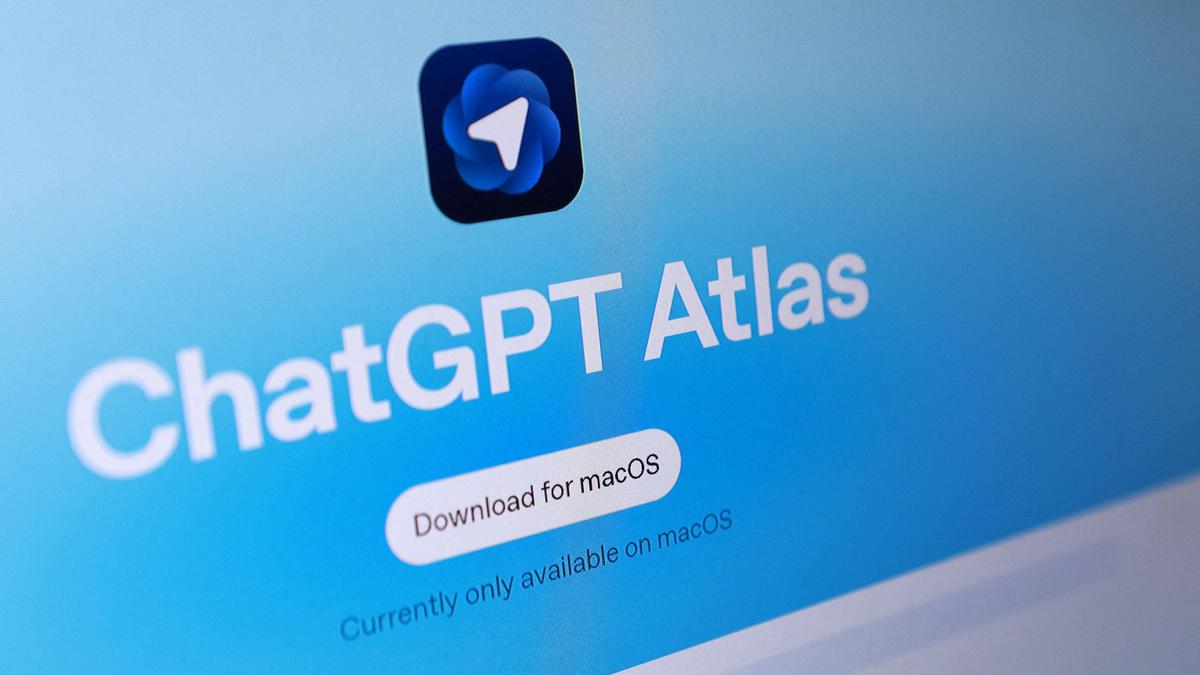OpenAI Launches AI Browser ‘Atlas’

- 25 Oct 2025
In News:
OpenAI has unveiled ‘Atlas’, its new AI-powered web browser built around ChatGPT, marking a significant step in the evolving generative AI competition and posing a direct challenge to Google Chrome’s dominance. The move comes soon after Perplexity AI introduced its own AI-integrated browser, Comet, underscoring a major transformation in how users interact with the internet.
About Atlas
- Developer:OpenAI
- Nature: AI-integrated web browser built around ChatGPT
- Availability: Currently in preview mode for ChatGPT Plus, Pro, and Business users.
- Design: Atlas removes the traditional address bar, replacing it with a conversational AI interface.
- Key Feature – Agent Mode:
- Enables the browser to autonomously perform searches, analyze sources, and synthesize information into concise summaries.
- Allows users to ask questions in natural language instead of typing web addresses or search keywords.
The browser seamlessly combines web navigation and AI interaction, positioning itself as the next step in AI-mediated online browsing.
Why AI Companies Are Building Browsers
- Control Over User Interface and Data:Browsers act as the gateway to most online activities—search, shopping, finance, entertainment, and social media. Controlling this entry point enables AI companies to own user intent, data, and engagement patterns.
- Monetization Potential:Like Google’s ad-based model, AI browsers can monetize user activity and queries by integrating AI-generated recommendations and sponsored content.
- Integrated AI Experience:AI browsers embed conversational AI tools directly into familiar interfaces, bridging the gap between chatbots and traditional search engines.
- Strategic Advantage:By embedding AI assistants within browsers, companies like OpenAI and Perplexity can reduce dependence on traditional search engines (notably Google), reshaping the competitive dynamics of the internet ecosystem.
How AI Browsers Are Transforming Search
- Traditional Search Model:Relies on keyword-based queries returning multiple hyperlinks for users to navigate.
- AI-Powered Search Model (Atlas & Comet):
- Delivers direct, synthesized, and contextually relevant answers instead of a list of links.
- Suggests related prompts for deeper exploration and learning.
- Adapts to individual user preferences, creating personalized information journeys.
This shift reduces dependence on link-based navigation, potentially disrupting traditional search traffic and publisher visibility models.
Broader Implications
- For Users:
- Offers faster, personalized, and conversational search experiences.
- Transforms passive browsing into interactive discovery.
- For the Digital Ecosystem:
- Challenges Google’s dominance in search and browser markets.
- Raises new debates on data privacy, content attribution, and information accuracy.
- Could reshape digital advertising, as traffic shifts from web pages to AI-generated summaries.
- For the AI Industry:
- Signals a new phase of competition between leading AI firms like OpenAI, Google, and Perplexity.
- Marks a trend towards AI-integrated ecosystems where chatbots, browsers, and search engines converge.
